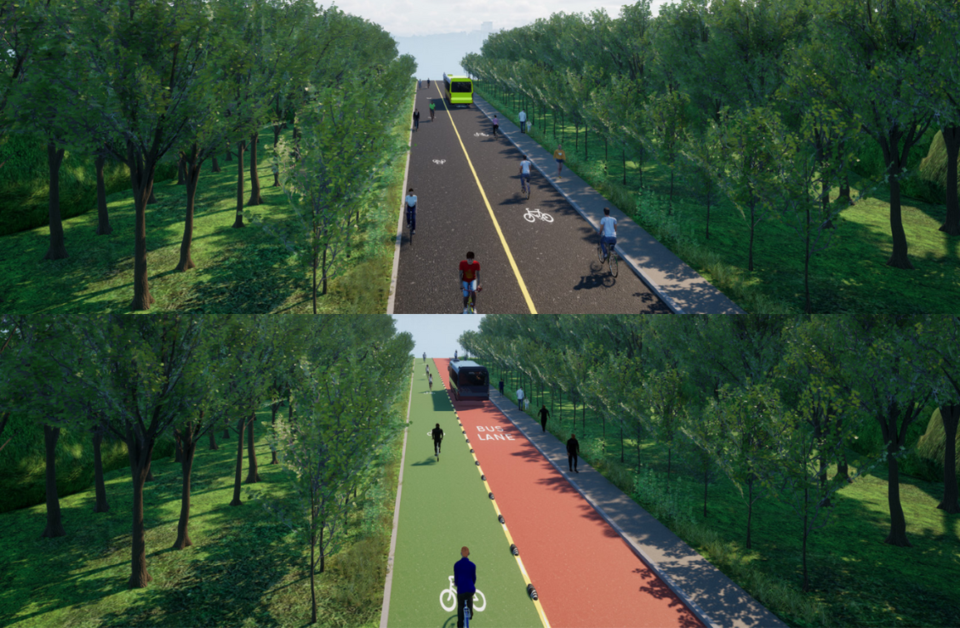One of Vancouver's most iconic drives could be changing.
Stanley Park Drive, the famed loop around Stanley Park (and the longest road in the city), may not be a drive that cars will be able to take in the future.
The City of Vancouver's parks board is looking at different options for the road, including whether cars should be allowed at all, bike lines and time restrictions. A recent study has identified six options.
"The focus of the study is Stanley Park Drive, which has not changed in 130 years, despite Vancouver’s population growing rapidly and tourism at an all-time high," reads a page on the city's website. "The park now attracts over 18 million visitors every year, so we want to know what can be done to handle more visitors without having to build more roads and remove forest."
The six options presented in the study are:
- A: Time-Based Vehicle Access Restrictions (cars would only be allowed at specific times)
- B: Vehicle Time Slot Bookings (cars would have to book slots to drive the loop)
- C: Park Drive with Dedicated Transit Lane (one lane would be for public transit and tour buses)
- D: Park Drive with Dedicated Bike Lane (one lane would be for active, wheeled transportation like bikes or e-scooters)
- E: Car Free Park Drive with Dedicated Bike Lane & Dedicated Bus Lanes (no cars with one lane each for buses and active, wheeled transportation)
- F: Car Free Park Drive for Active Transportation & Shuttle/Transit Only (no cars, a two-way lane for active, wheeled transportation, and a lane for slow buses going one-way only)
The city is currently asking for feedback from locals. A survey is open until July 28.
"Any future option will require a phased approach and further work to define short-term and long-term actions," reads the study.


